Discover 7 Chicken Predators and Which One Wrecks the Most Havoc
Raising backyard chickens is a rewarding and enjoyable experience. You get fresh eggs, charming companions, and a deeper connection to nature.
However, one challenge that every chicken enthusiast must face is protecting their flock from chicken predators. These relentless threats can wreak havoc in your coop if you’re not well-prepared.
In this article, we will discuss some common chicken predators and provide tips on how to safeguard your feathered friends.
Growing Your Flock and Reaping the Benefits
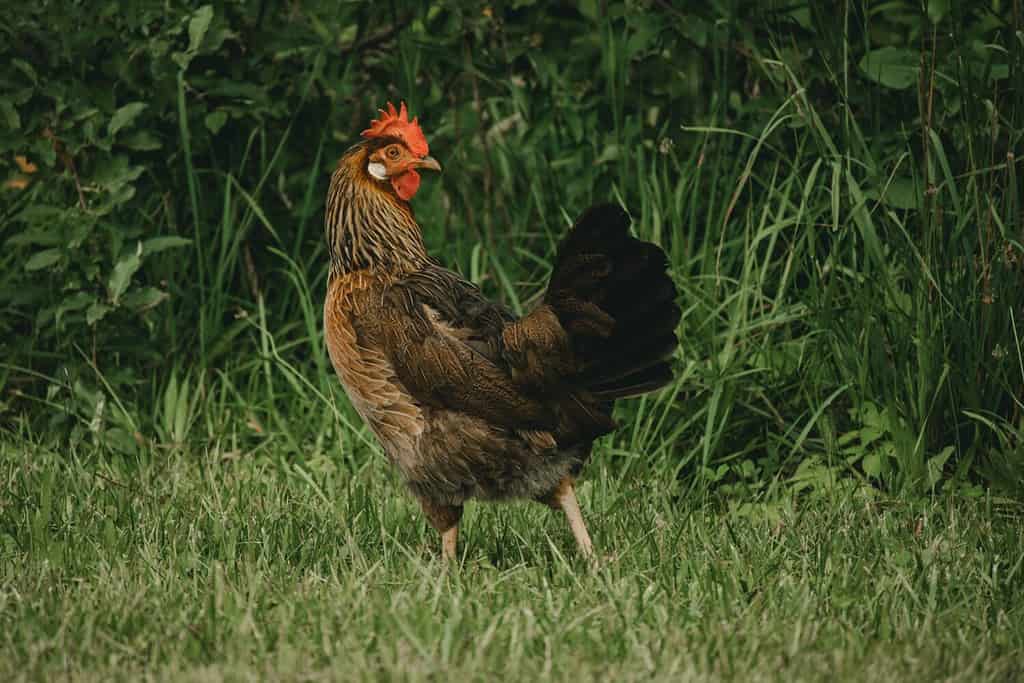
©Wirestock Creators/Shutterstock.com
Raising chickens is a deeply rewarding endeavor that not only offers a steady supply of fresh eggs but also a host of other benefits. Here are some tips for growing your flock:
Start Small
If you’re new to chicken keeping, it’s wise to start with a small flock. A few chickens are easier to manage and allow you to gain valuable experience without becoming overwhelmed.
Choose the Right Breeds
Different chicken breeds have varying characteristics, including egg-laying potential, temperament, and cold or heat tolerance. Research and select breeds that suit your specific needs and climate.
Provide Adequate Space
Ensure your chickens have enough space in their coop and run. Overcrowding can lead to stress and health problems.
Proper Nutrition
Offer a balanced diet that includes high-quality chicken feed, fresh water, and occasional treats. Nutrient-rich food will lead to healthier, more productive birds.
Healthcare
Regularly monitor your chickens for signs of illness or parasites. Establish a relationship with a local veterinarian who specializes in poultry health.
Socialization
Spend time with your chickens to build a bond with them. This can make them friendlier and more manageable.
Egg Collection
Gather eggs daily to ensure they are clean and fresh. Proper egg handling and storage will extend their shelf life.
Benefits of Having Backyard Chickens
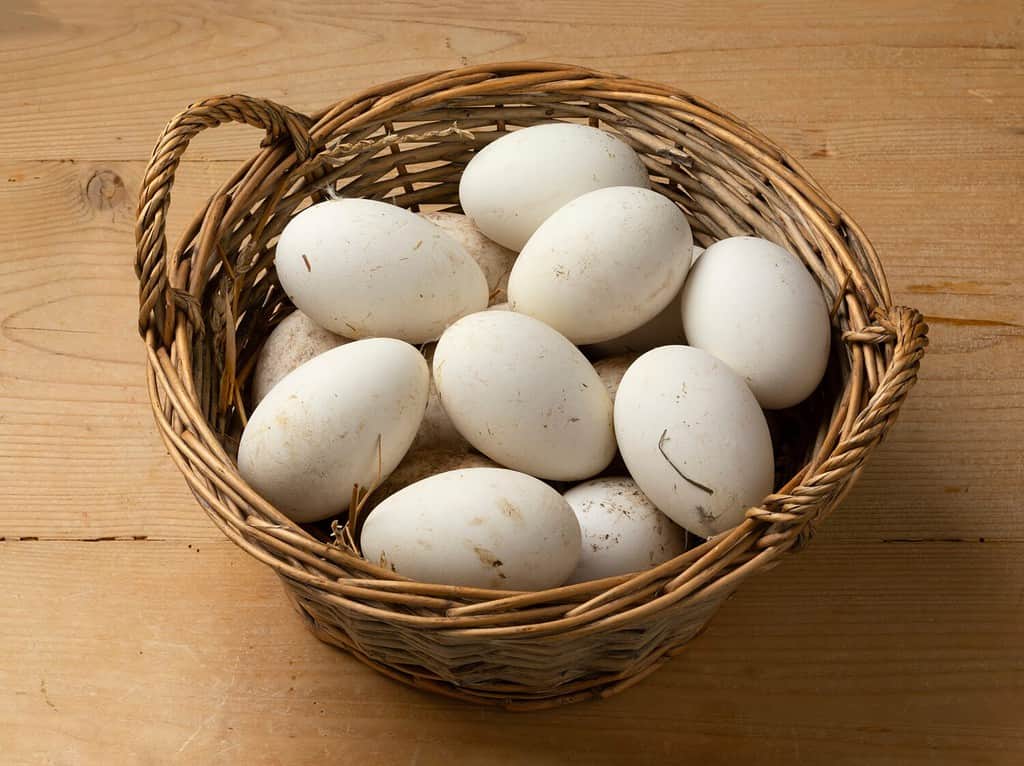
©Picture Partners/Shutterstock.com
Here are the most commonly identified benefits of having a backyard flock:
Fresh Eggs
Perhaps the most obvious benefit of raising chickens is the daily supply of fresh, organic eggs. They taste better than store-bought eggs and are rich in nutrients.
Gardening Partners
Chickens are excellent garden assistants. They help control pests by eating insects and weeds, while their droppings make a nutrient-rich fertilizer for your plants.
Education for Kids
Raising chickens offers a wonderful educational opportunity for children. They can learn about responsibility, animal care, and the natural cycle of life.
Sustainability
Keeping chickens is a sustainable practice. They eat kitchen scraps, reducing waste, and provide a renewable food source in the form of eggs.
Stress Reduction
Many chicken enthusiasts find that spending time with their feathered friends is a calming and stress-reducing activity. Chickens have endearing personalities and are fun to watch.
Local and Ethical Food
Raising your own chickens aligns with the principles of eating locally and knowing where your food comes from. You can ensure your chickens are raised in a humane and ethical manner.
Why People Want Chickens
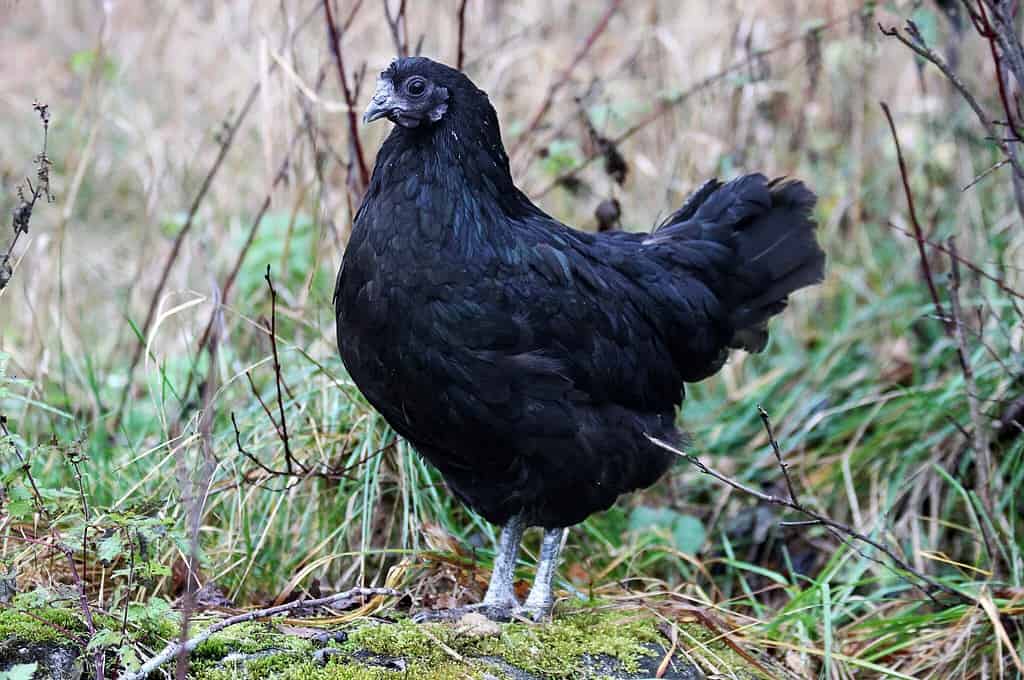
©Freyja Imsland, CC BY 3.0, via Wikimedia Commons – License
People raise chickens for a variety of reasons, but the most common reasons are:
Homegrown Food
In an era where many people are seeking more control over their food sources, backyard chickens offer a sustainable way to produce your own eggs.
Connection to Nature
Chickens bring a slice of rural life to suburban and urban environments. People are drawn to the simplicity and authenticity of raising chickens.
Companionship
Chickens are surprisingly social and can be wonderful companions. Their clucking and scratching provide a soothing backdrop to daily life.
Hobby and Pastime
For many, raising chickens is a fulfilling hobby. It provides an opportunity to connect with like-minded individuals, whether through local clubs or online communities.
Raising chickens offers the joy of homegrown eggs, a connection to nature, and a chance to live more sustainably.
But, how do you protect your flock?
Identifying Common Chicken Predators
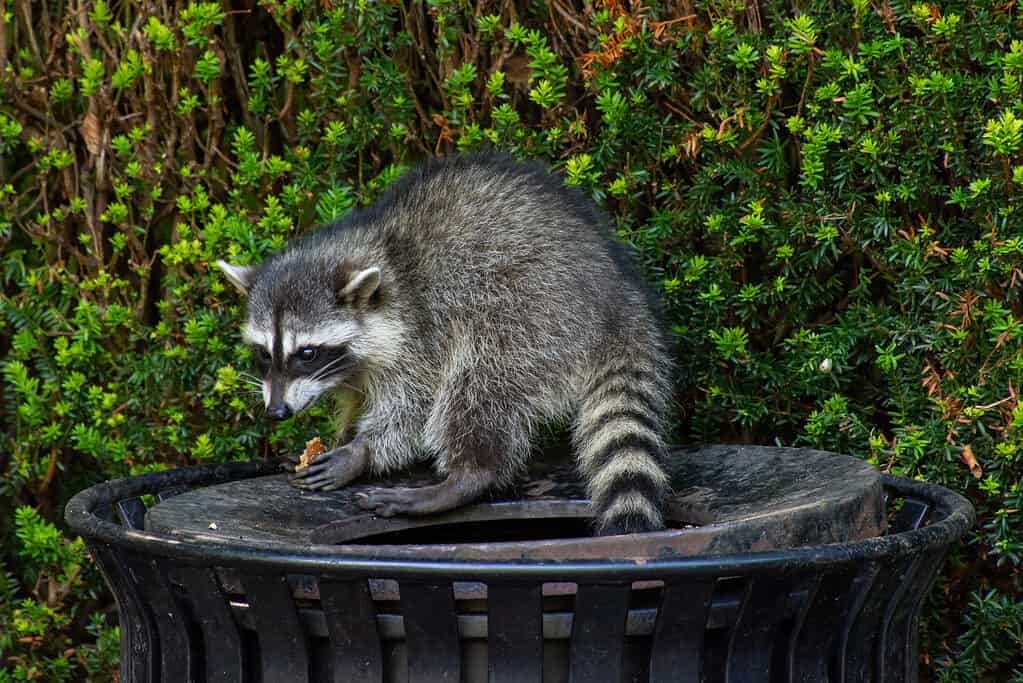
©kingma photos/Shutterstock.com
Your most common predators will depend significantly on where you live, but here are the top predators flocks normally encounter:
1. Foxes
Foxes are cunning and persistent predators. They can dig under fences and are known for their stealthy approaches, often striking at night. You can identify their presence by their distinctive paw prints and the remains of chickens with missing heads.
2. Coyotes
These opportunistic hunters can jump over fences, so ensure your coop is fortified against them. If you hear eerie howling at night, be alert to the possibility of coyotes lurking near your chickens.
3. Raccoons
Raccoons are notorious for their dexterity and intelligence. They can open latches, doors, and even slide bolts. Look for tracks or signs of tampering with locks when suspecting raccoon activity.
4. Hawks
Raptors like hawks and owls are aerial predators. They can swoop down and snatch a chicken in a matter of seconds. If you spot these birds of prey circling your coop, take immediate action.
5. Snakes
Certain snake species, like rat snakes and racers, can be chicken predators. They can enter through small openings, so ensure that your coop is well-sealed and free of any gaps.
6. Weasels
These small and agile predators can squeeze through tiny openings. They often kill more chickens than they can consume in a single attack.
7. Dogs and Cats
Family pets can sometimes pose a threat. Ensure that your own pets are well-trained and never left unsupervised around the chicken coop.
Preventing Chicken Predators
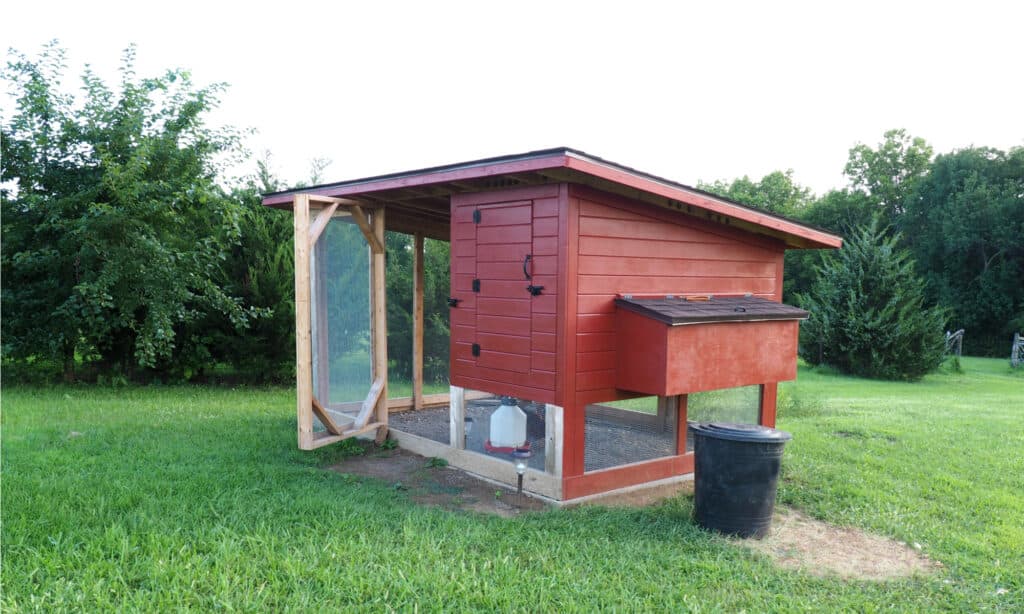
©Cynthia Farmer/Shutterstock.com
Now that you know the most common chicken predators, let’s discuss how to protect your flock:
Secure Coop Design
Start with a well-built coop. Ensure that it is sturdy and sealed against potential intruders. Use hardware cloth instead of regular chicken wire, as it’s more durable and provides better protection.
Locks and Latches
Install locks and latches on coop doors. Raccoons, in particular, are quite adept at opening simple latches. For extra security, use padlocks or predator-proof latches.
Electric Fencing
Electric fencing can deter predators like foxes and coyotes. Install it around the coop, and remember to turn it on at night when these predators are most active.
Predator-Proofing the Run
If you allow your chickens to roam in an outdoor run during the day, ensure it’s also protected. Use hardware cloth on all sides and overhead to prevent aerial attacks.
Nighttime Lockdown
Lock your chickens in their coop at night. Most chicken predators are nocturnal, so this simple practice can save your flock.
Guardian Animals
Consider getting a livestock guardian dog or adopting a vigilant rooster to help deter potential threats.
Regular Inspections
Periodically inspect your coop and run for signs of wear and tear. Repair any holes or weak spots promptly.
Motion-Activated Lights and Alarms
Install motion-activated lights and alarms in your coop area to startle predators away.
Remove Attractants
Don’t leave food scraps or water outside the coop overnight, as these can attract predators.
Chicken predators are a common challenge for backyard chicken enthusiasts, but with the right precautions, you can keep your flock safe and happy.
A proactive approach is your best defense against these relentless threats, and it will ensure that your feathered friends thrive in their peaceful coop.









